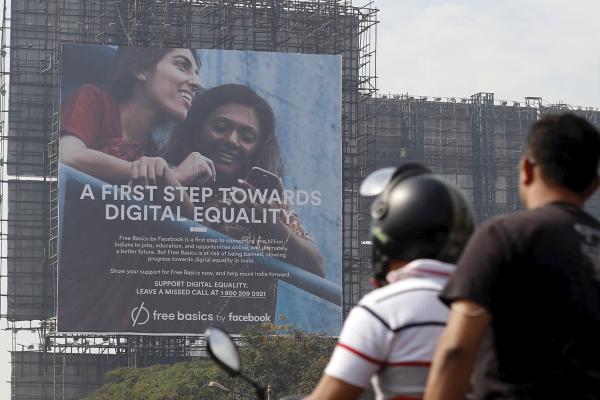A COUPLE years ago, when net neutrality (the principle that internet service providers must treat all websites equally) was threatened by the U.S. Federal Communications Commission (FCC), Facebook stood firmly in its defense. Google, Netflix, Amazon, Twitter, and other high-tech giants took the same stand. Companies that make their money providing content or mining data from web users need net neutrality in order to function.
This February, India’s equivalent of the FCC, their Telecom Regulatory Authority, had to decide an important net neutrality test case there. A huge, U.S.-based multinational came into the Indian market offering an internet connection that limited users to the parent company’s own site and a severely limited menu of other pre-selected sites. This company spent millions on an advertising campaign against the principle of net neutrality in India. But finally Indian regulators stood firm and net neutrality was upheld.
The strange twist here is this: The U.S.-based Goliath fighting net neutrality in India was Facebook.
An obvious conclusion here would be that Facebook thinks net neutrality is only good for rich countries. Indians must be too poor, too ill-educated, maybe even too brown to handle the freedom and responsibility that comes with an open internet. That impression was confirmed when a member of Facebook’s board of directors, venture capitalist Marc Andreessen, went on Twitter to proclaim: “Anti-colonialism has been economically catastrophic for the Indian people for decades. Why stop now?”
Read the Full Article

